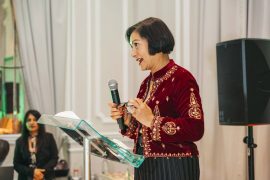The reforms going on in Saudi Arabia are quite difficult to neglect. These reforms are in line with a wide-ranging plan announced by 32-year-old Prince Mohammed bin Salman to bring social and economic change to the oil-dependent kingdom, known as Vision 2030.
The promotion of gender-based rights has hit a snag in Africa and the middle East where religion and widely held traditional beliefs have dominated a lot of decision-making and policy-formulating processes. There have been accusations of female activists, clerics, and academics as dissidents funded by the Western countries.
In September, a royal decree said that women would be allowed to drive for the first time from June 2018 was pronounced. Prince Mohammed has said that “moderate Islam” was key to his plans to revolutionise the country. In a high-level business conference in Riyadh, Salman said “We are returning to what we were before — a country of moderate Islam that is open to all religions and to the world, we will not spend the next 30 years of our lives dealing with destructive ideas. We will destroy them today.”
In a cascade of barrier-breaking moments, the ban on women from stadium activities was also lifted, with Saudi Arabian women granted access to attend a rally to celebrate the 87th annual National Day of Saudi Arabia in Riyadh, Saudi Arabia on September 23.
Of particular concern in the upliftment of the driving ban are the several “Guardianship Laws” that have given men a total control over the female folks. Under these laws, women cannot travel abroad, work or undertake some medical procedures without the consent of their male “guardian,” often a father, a husband or even more preposterous, a son. While the implementation of these guardianship laws has been lax in recent years, little has been done to stop Saudi men from limiting the movements of their wives or daughters.
Although many Saudis are largely conservative, these new laws will basically give a boost to other expected laws. The Saudi byelaw stipulates voting(during elections) to be by “all citizens” but in the upcoming provincial elections( the first in the Kingdom’s history), the women would not be allowed to cast their ballots. It is expected that this sweeping reforms will open up other necessary frontiers.




